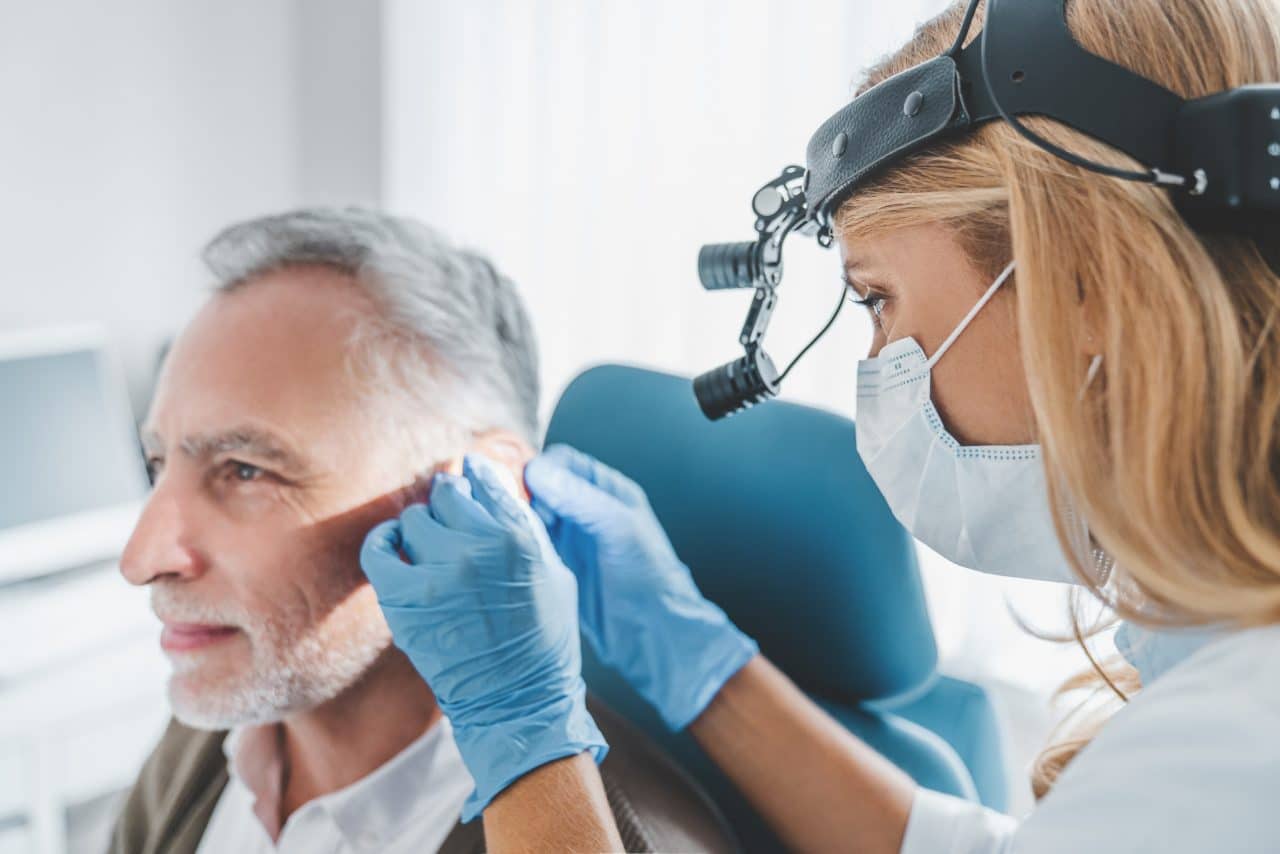Earwax buildup is one of the more common problems hearing aid users face. Let’s look at how earwax can cause problems and what you can do to protect your ears and your device.
How Earwax Can Damage Hearing Aids

When earwax builds up on your hearing aids, it can cause them to function poorly. You might start to notice issues like:
- Hearing aid feedback (whistling sound)
- Muffled or distorted sound leading to difficulty hearing when out with friends at Palace Coffee Co.
- Reduced effectiveness
- Worsening hearing loss
Acids from earwax can eventually start to degrade your hearing aid, causing damage that may lead to you needing to repair or replace your device.
Hearing Aids Increase Earwax
Unfortunately, hearing aids actually make earwax buildup in your ear more likely, which compounds the problem.
Usually, ears are self-cleaning, and earwax dries and sloughs off on its own. However, earwax is more likely to accumulate and cause a hearing impairment when this is prevented due to a foreign object in the ear, such as a hearing aid.
Preventing Earwax Buildup
You may assume that if you have hearing aids, cleaning your ears with a cotton swab is necessary due to the increased likelihood of buildup. However, this is not the case. Attempting to remove the earwax yourself can accidentally push it farther back into your ear canal and cause impaction.
Instead, you should take the following steps to deal with earwax buildup:
- Develop a regular hearing aid cleaning routine. This means cleaning your device each night before you go to bed. You can use a soft, dry cloth or a soft-bristled brush. Store your hearing aids in a cool, dry place, and keep them away from moisture and heat. If you use wax guards, make sure to replace them regularly every few months.
- Visit your healthcare provider for earwax removal. Because wearing hearing aids increases your risk of earwax buildup, you should visit your health care professional every three to six months (or any time you have symptoms of blockage) to have your ear canals checked for impaction. If buildup is found, they can manually remove it in the office or treat it with a wax-dissolving agent.
For more information or to schedule an appointment with one of our experts, contact Amarillo Hearing Clinic today.
